Labs
deaf 𝑥 lab
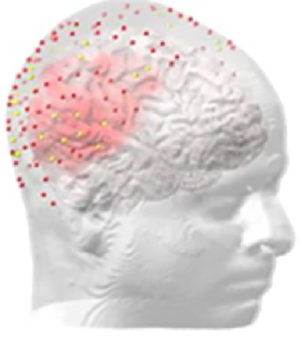
The deaf 𝑥 laboratory conducts research on brain reorganization in the face of altered sensory input, asking what happens to the brain areas and neural pathways associated with visual and multi-sensory processing when auditory input is missing.
While housed in NTID, psychology majors have the opportunity to participate as research assistants on projects in deaf 𝑥 laboratory.
PLAY Lab
The newly-founded Perception, Language and Attention in Youth (PLAY) Lab aims to better understand how deafness and sign language experience impact cognitive development. They use eye-tracking to measure gaze behavior in infants, children, and adults to address questions about how we learn and process American Sign Language. The PLAY Lab is looking to expand by hiring highly motivated researchers!
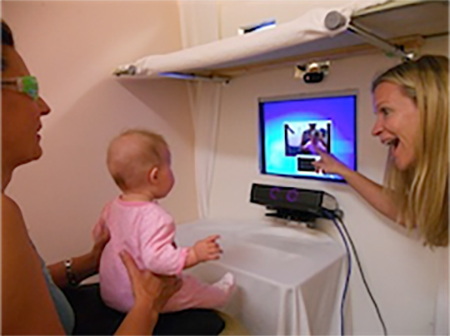
PAW Lab
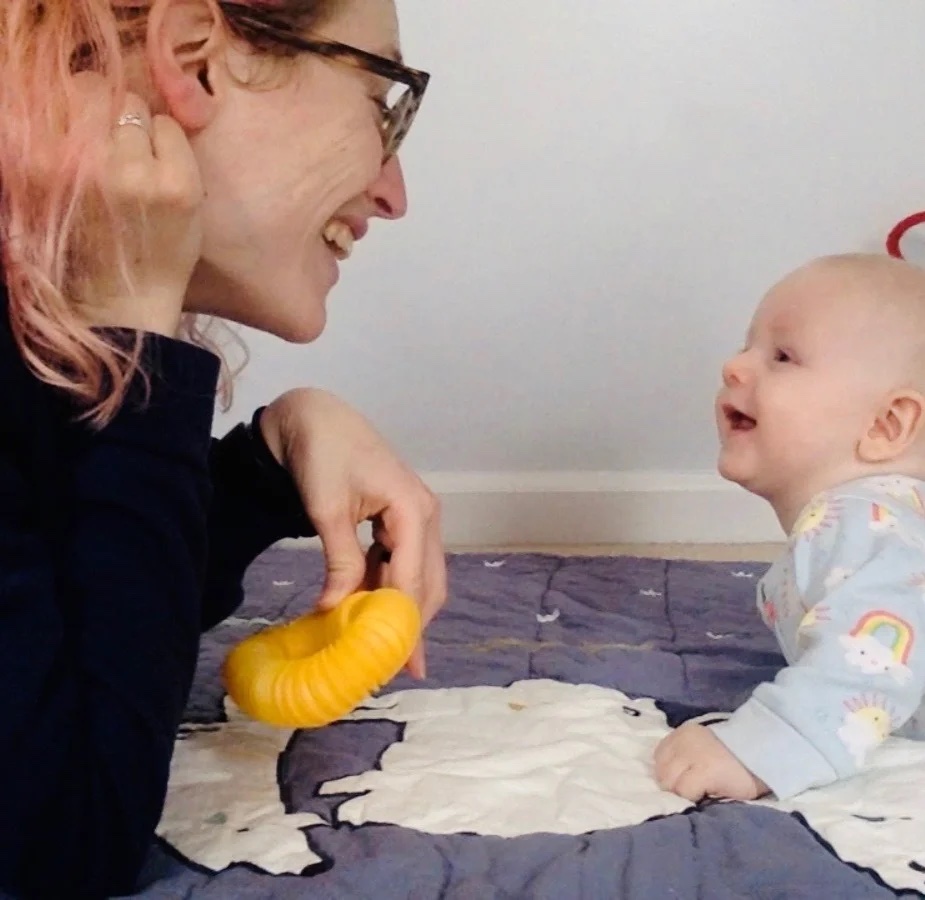
The PAW (Perception & Acquisition of Words) Lab is part of the NTID SPACE center. It is directed by Dr. Allison Fitch, Assistant Professor in the Department of Psychology. The lab’s goals concern the inter-relationships between the developing visual cognitive system and language acquisition. Dr. Fitch is particularly interested in understanding how joint attention contributes to language acquisition, and the relationship between early language experiences and low-level visual attention mechanisms. The lab studies these questions primarily in infant and toddler populations, particularly deaf children acquiring American Sign Language.
RITE Lab
The Research of Interpretation and Translation Education (RITE) Laboratory – directed by Dr. Kierstin Muroski - is a new addition to NTID’s Sensory, Perceptual, and Cognitive Ecology (SPaCE) Center. The mission of the RITE lab is to perform socially conscious research of the education of signed language interpreters including broad focus on: students, faculty, curricula, assessment, history, and institutions. The goal of the lab is to create inquiry-based scholarship to inform improvements to the discipline of interpreter education and improve the quality of services to the Deaf and hearing communities. Our current projects include: InterpNET: The first comprehensive open access, interactive digital library of resources for the field of signed language interpreting; Signed Language Interpreter Education: A Comparison of First-Generation and Non-First-Generation Bachelor’s Students, and monthly pedagogical roundtable discussions with undergraduate students.
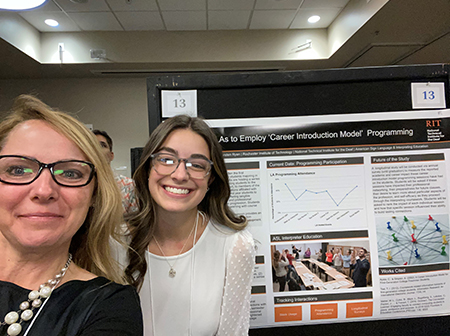
RAD Lab
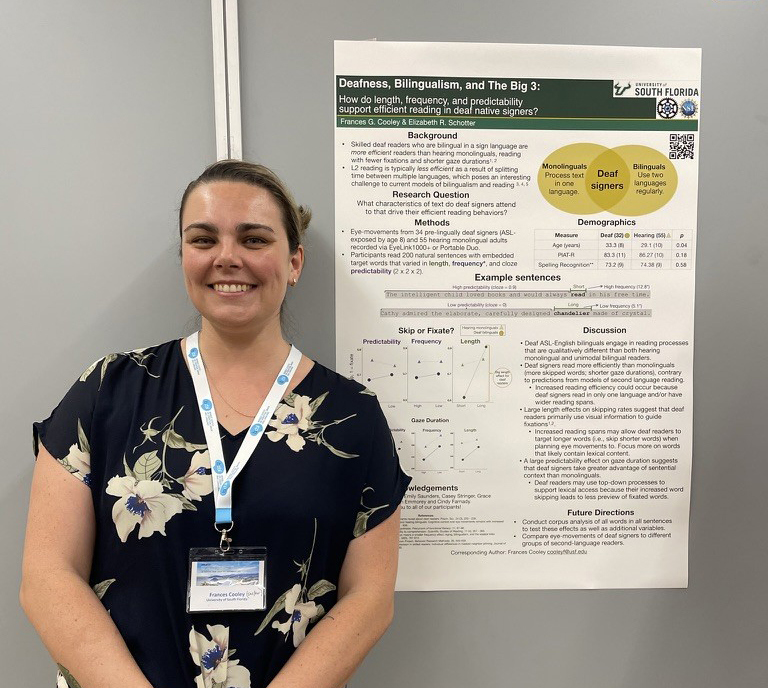
The Reading and Deafness (RAD) Lab, led by Assistant Professor Dr. Frances Cooley, focuses on understanding how deaf and hard-of-hearing (DHH) children and adults develop reading skills. Reading is crucial for educational and professional success, yet DHH students in the U.S. consistently show lower reading levels, indicating that current language and educational practices may not meet their needs. Our lab uses eye-tracking, behavioral language testing, and advanced statistical modeling to examine the cognitive processes behind successful reading in individuals who learned American Sign Language (ASL) before or after acquiring reading skills. Our ultimate goal is to inform early language and educational practices for DHH children to optimize literacy acquisition for educational success. Current studies include: The See Hear Project (skilled deaf readers who are native signers of ASL), the CODA Project (hearing native signers of ASL). Upcoming studies include: The EL1 Study (deaf readers who did not acquire ASL before learning to read).
We are actively seeking research participants and passionate researchers to join our team! For more information, contact Dr. Cooley at fgcdls@rit.edu.
Langdon Laboratory
The Langdon Laboratory for Developmental Cognitive Neuroscience aims to advance understanding of how different experiences with language and sensory differences impacts the cognitive processes underlying other domains of cognition. Currently, our most active line of research is focused on investigating how deafness and later first language impacts the learning of early numerical cognition. The aim is to generate knowledge that will have a twofold impact: (1) refines and improves our models of cognition (perhaps even revolutionizes them!) (2) can be used by applied education scientists for them to be informed in their attempts to design better interventions for children with later first language exposure. How do we do it? We study these questions using a variety of designs and make cross-sectional and longitudinal comparisons. We use experimental tasks to collect cognitive processing and we also collect information about participants from cognitive assessments, questionnaires (e.g. language background), and EEG recordings.
These kinds of data are analytically approached with regression, repeated measures analysis of covariance (ANCOVA), multilevel modeling (MLM), structural equation models.